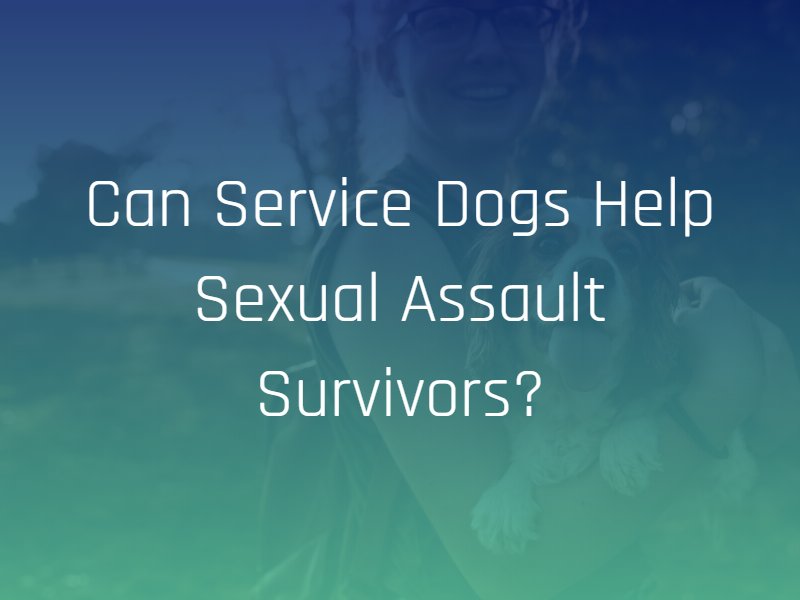Service dogs can provide a number of benefits for people who need assistance with daily tasks or who suffer from conditions that affect their daily lives. While we often associate service dogs with people who have physical health conditions, such as blindness or seizures, these animals can provide a number of benefits for people with mental health conditions as well.
If you are a sexual assault survivor who experiences anxiety, post-traumatic stress disorder, or another serious mental health condition as a result of the attack, you may be eligible for a service dog.
What Are Service Dogs?
Psychiatric service dogs are canines that have the training necessary to reduce social isolation, invite emotional engagement, and help mitigate symptoms of post-traumatic stress disorder and other trauma-related mental health conditions. While many of us associate these animals with combat veterans struggling with PTSD, they can also help other individuals who experience this condition — including sexual assault survivors.
Service dogs can perform a number of tasks for survivors with PTSD, including the following.
- Service dogs can perform alert tasks that direct the survivor to his or her needs. Alert tasks include medication reminders, alerting the survivor to an approaching vehicle or person, or even alerting a survivor to a panic attack or dangerous levels of chemicals in the body, including high blood pressure and stress hormones.
- Service dogs can also distract or interrupt a flashback, panic attack, act of self-harm, dissociation, or repetitive behaviors. These interruptions can help reduce stress and the effects of these harmful events.
- Service dogs can guide survivors through crowded places, helping create a barrier between the survivor and other people when navigating these areas. As a result, service dogs can help prevent motions from other people that might trigger a flashback or panic attack.
Service Dogs and PTSD
PTSD is prevalent among survivors. According to the Rape, Abuse, and Incest National Network (RAINN), approximately 94% of women who are sexually assaulted experience PTSD symptoms in the two weeks following the attack. 30% of women continue to report PTSD symptoms 9 months after the assault.
Numerous studies show that service dogs have proven benefits for people suffering from PTSD. Researchers from Purdue University found that veterans and military members with PTSD saw a clinically significant reduction in their PTSD symptoms after they received a service dog. These findings correlate service dogs with a number of benefits, including lower degrees of depression, higher life satisfaction, and higher degrees of resilience.
Benefits of Service Dogs for Sexual Assault Survivors
If you are struggling with post-traumatic stress disorder or another condition following sexual assault, training a service dog can help. Service dogs can provide a number of benefits for survivors of sexual violence, including the following.
- Service dogs can greatly reduce anxiety and stress among their patients. Over time, you can see a reduction in the amount of flashbacks or anxiety attacks you experience, as well as an improvement in your ability to think and respond rationally to stressful situations.
- Service dogs can help you complete daily tasks, such as remembering to take your medication. With this gentle encouragement and training, service dogs can increase your independence and assist you with day-to-day functions.
- Since you have a support system with you to help you overcome the effects of a panic attack or flashback, service dogs can help you develop healthier coping mechanisms. By observing the dog’s physical cues and behaviors, you can slowly begin to heal and become more self-sufficient, allowing you
Contact a Sexual Assault Attorney Today
Service dogs can assist anyone who lives with a health condition, including people who are suffering from post-traumatic stress disorder, anxiety attacks, and other mental health issues related to sexual assault. If you are interested in obtaining a service dog to help you through this difficult time, speak to your healthcare provider as soon as possible.
If you need assistance understanding your legal options following a sexual assault, contact a sexual assault lawyer with experience representing survivors in the courtroom. Your attorney can advise you on the best course of action towards the justice you need, and can help build a compelling case to present your story to the court.

